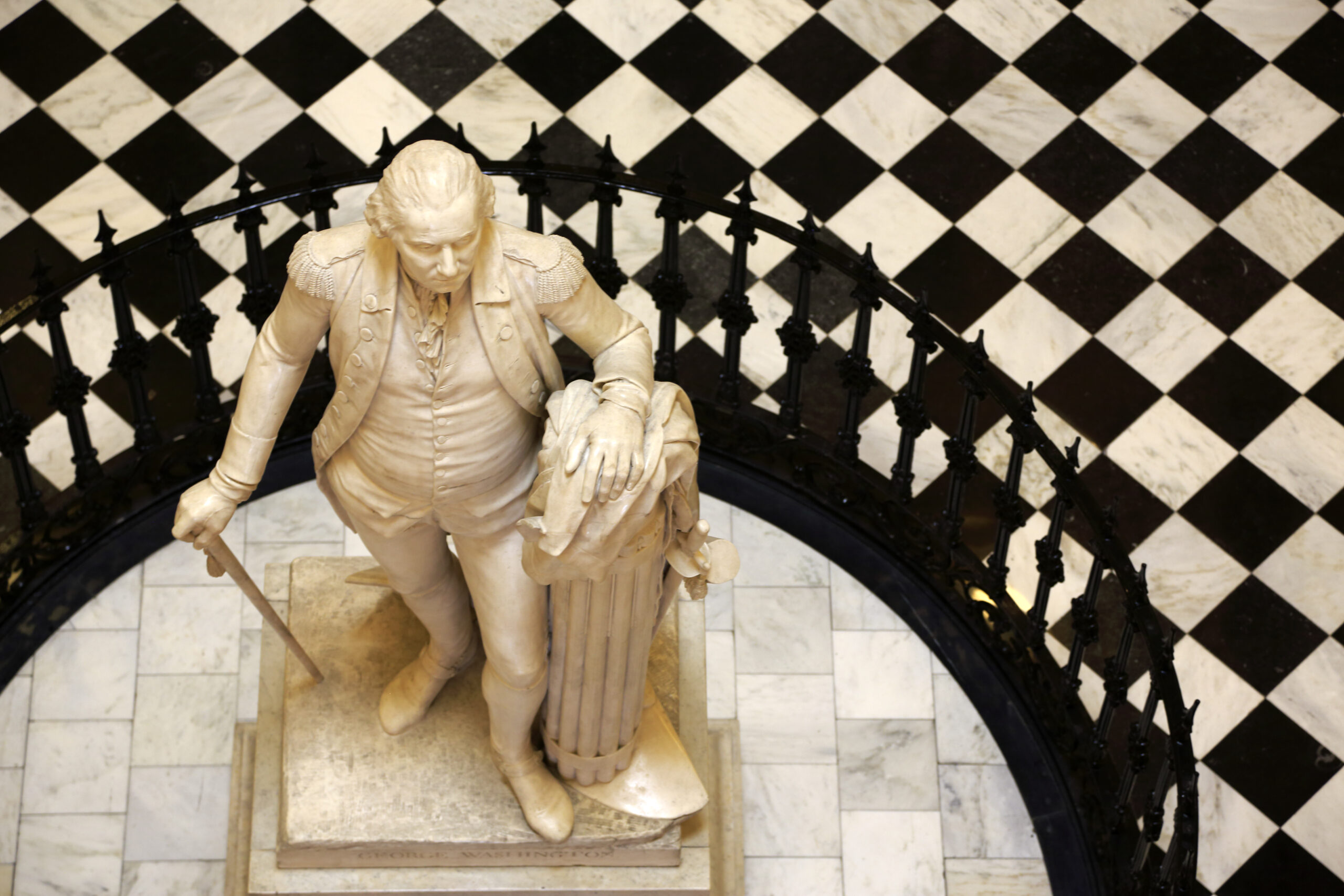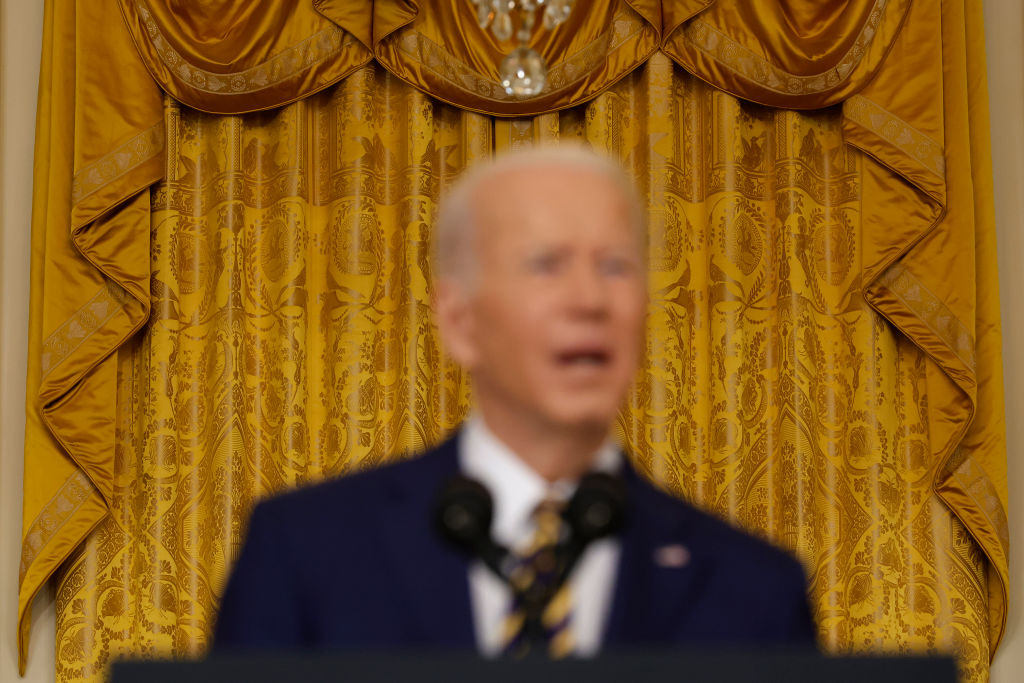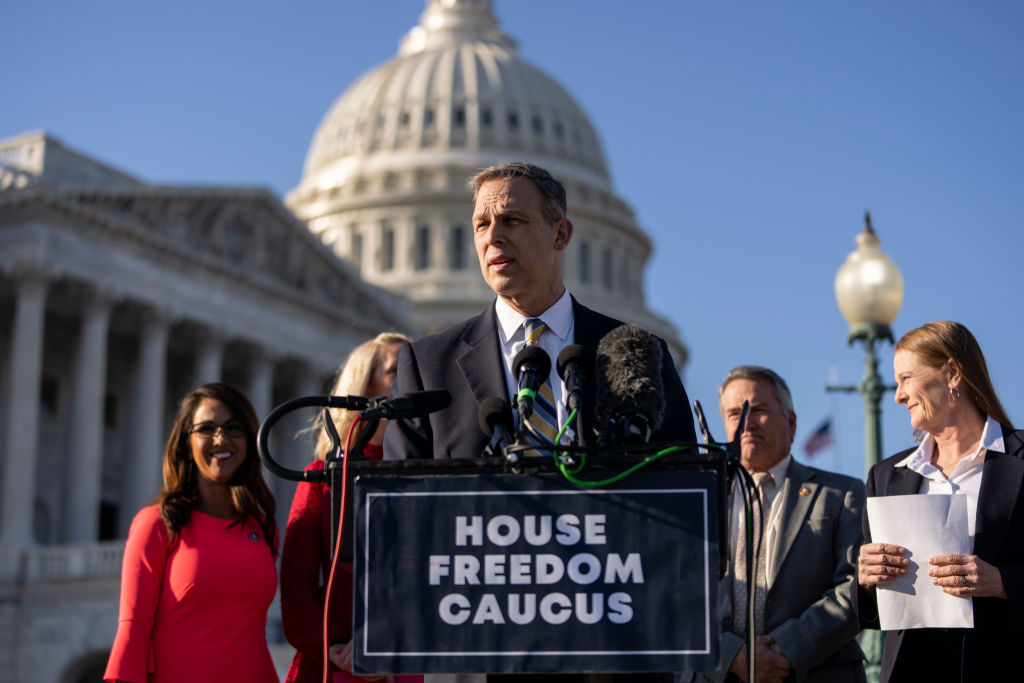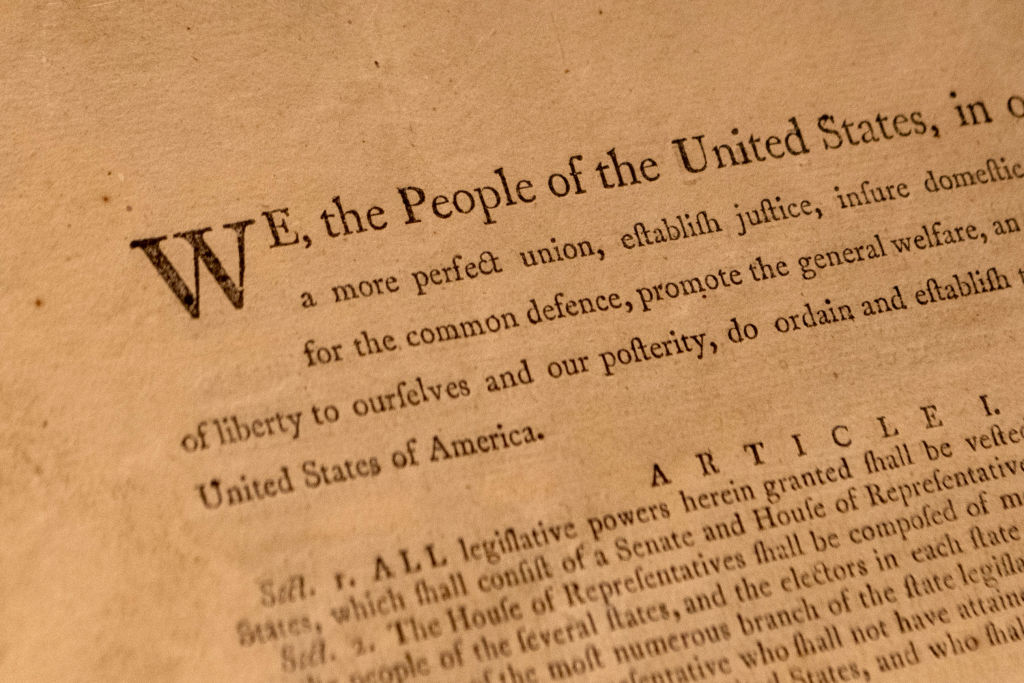On tradition, rights, and what justifies them.
Double Jeopardy
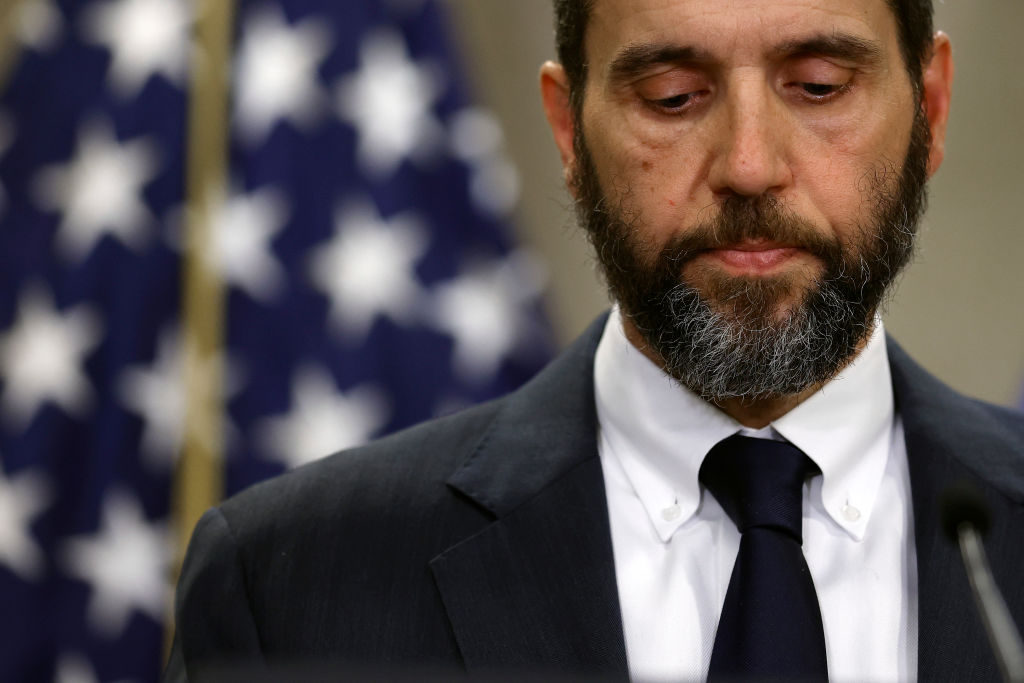
Jack Smith’s indictments of Donald Trump are unconstitutional because he was already tried in the Senate.
Article II, Section 1 of the Constitution reads “[t]he executive Power shall be vested in a President of the United States of America.” Therefore, President Donald Trump had executive power vested in him through his presidential office. From that power flows certain privileges and indeed executive immunities. Among these privileges are those expressly delineated in the Constitution itself. The impeachment process, for example, as stated in Article II, Sec. 4, requires that for all “high Crimes and Misdemeanors,” the president “shall be removed from Office.”
In other words, the Constitution lays out a process by which presidents of the United States are to be prosecuted—through impeachment. The reason impeachment, rather than traditional prosecution (and attendant punishments like incarceration), applies to the president is because of the uniqueness of the office itself. The president exposes himself to outsized publicity, controversy, and risk as a result of his office. Therefore, the punitive measures that uniquely attach to the executive officeholder are consonant with the duties and powers of the office itself. In addition, there is a special constitutional prerogative, one might say, in safeguarding the integrity of the presidential office, no matter the character and fitness of its occupant. Specifically, that would mean not imprisoning the officeholder or former occupants of the office based on alleged criminality done within the officeholder’s official capacities as president. It is for this reason that the Department of Justice has confirmed, “to wound [the President] by a criminal proceeding is to hamstring the operation of the whole governmental apparatus, both in foreign and domestic affairs.” (Memorandum from Robert G. Dixon, Jr., Asst. Att’y Gen., O.L.C., Re: Amenability of the President, Vice President, and Other Civil Officers to Federal Criminal Prosecution While in Office 30 [Sept. 24, 1973]). How far-reaching the scope of those capacities cover while in office should give way to a liberal construction due to the catastrophic impact such charges would necessarily have on the political fabric of the country.
In any event, and for the purposes of what is relevant in Jack Smith’s two indictments, the factual grounds on which President Trump allegedly committed crime(s) within his official duties as president have already been twice considered by the House of Representatives, for which the president—in conformance with Article II, Sec. 4—was acquitted both times by the Senate. Because the Senate voted not to convict President Trump of his alleged crimes, any and every remedial measure afforded by the constitutional process has already been exhausted. Therefore, to continue to bring charges against the president for the asserted crimes on which he has already been prosecuted is by definition an abuse of the judicial power and an expressed violation of the Double Jeopardy Clause of the Fifth Amendment: “…nor shall any person be subject for the same offence to be twice put in jeopardy of life or limb…”
Notably, the Impeachment Judgment Clause of the Constitution, Article I, Sec. 3, reads as follows: “a person convicted upon an Impeachment, shall nevertheless be liable and subject to indictment, trial, judgment and punishment, according to law.” A plain reading of the clause allows for the subsequent indictment after a person is convicted—and convicted only. This is in agreement with the longstanding judicial canon of construction expressio unius est exclusio alterius, “the expression of one is the exclusion of others,” which provides that because the text excludes the term “acquittal” from the relevant clause, the framers’ intent was that only convicted officeholders would be open to additional prosecution, and not officeholders that were already acquitted based on constitutional procedure for their alleged crimes, therefore exhausting the constitutional remedy in toto. United States v. Wells Fargo Bank, 485 U.S. 351, 357 (1988).
This construction is likewise supported by common sense: any officeholder who is convicted while in office, based on constitutional procedure, is necessarily removed from office—it is inconceivable that any officeholder would remain in office after being convicted of a crime. But the reason a post-conviction prosecution, as opposed to an acquittal, runs a lesser risk of being in violation of double jeopardy, and is therefore expressly licensed by Article I, Sec. 3, is because, upon removal from office, there is a natural continuity in the prosecutorial function—indeed, additional time may be required to prosecute the case to the fullest extent of the law. The conviction, pursuant to constitutional procedure, is just the first step of the criminal trial. In contrast, if an officeholder were acquitted for an alleged crime and served the remainder of his or her term in office, it would not make sense to resume a criminal trial based largely on the same factual grounds on which the acquittal was based, once the acquitted officeholder left his or her post—in particular, after some time elapsed in which the officeholder was acquitted, served out the duration of his or her term, and then became a private citizen—only then to resume the criminal trial for which that officeholder had been acquitted. The latter scenario poses an obvious risk to double jeopardy (and flies in the face of common sense).
While the question is still occasionally debated, there is a great deal of support for the latter view in several important early legal commentaries and court decisions. For example, St. George Tucker, an editor of Blackstone’s Commentaries, raises the strong possibility that because “a conviction upon an impeachment is no bar to a prosecution upon an indictment, so perhaps, an acquittal may not be a bar.” (1 St. George Tucker, Blackstone’s Commentaries 337 & n* [Philadelphia, William Y Burch et al. 1803, reprint 1996]). Even stronger authority for this view is found in Justice Story’s 1833 Commentaries on the Constitution, wherein he expresses his conviction in the above stated construction of double jeopardy: “In case of an acquittal,” he wrote, “there cannot be another trial of the party for the same offence in the common tribunals of justice.” (2 Story’s Commentaries). This point of view agrees with other state charters that predate the federal Constitution, but nevertheless provided interpretative guidance, such as the 1784 New Hampshire Constitution, which contained the first bill of rights to explicitly adopt a double jeopardy clause. Within the New Hampshire Constitution’s double jeopardy clause, acquittal—which extended to acquittal by the Senate—is accounted for: “No subject shall be liable to be tried, after an acquittal, for the same crime or offence.” Art. I, Sec. XCI, 4 F. Thorpe, The Federal and State Constitutions, reprinted in H.R. Doc. No. 357, 59th Congress, 2d Sess. 2455 (1909).
More recently, an OLC memo from 2000 acknowledges that an acquittal by constitutional impeachment exhausts every single legal remedy for redressability, and therefore, to subsequently bring charges against that officeholder runs in flagrant violation of double jeopardy. On this theory, the OLC memo conceded: “Even if one took the view that the Impeachment Judgment Clause’s reference to ‘the party convicted’ implied that acquitted parties could not be criminally prosecuted, that implication would naturally extend only to individuals who had been impeached by the House and acquitted by the Senate.” (“Whether a Former President May Be Indicted and Tried for the Same Offense for Which He Was Impeached by the House and Acquitted by the Senate,” 24 Op. O.L.C. 110, 112 n.2 [2000]).
The Supreme Court has affirmed “the Double Jeopardy Clause prohibits merely punishing twice, or attempting a second time to punish criminally, for the same offense.” Helvering v. Mitchell, 303 U.S. 391, 399 (1938). Because the president has already been prosecuted—twice—for the asserted crimes underlying both of Jack Smith’s indictments, the legal remedy has already been applied: there is simply no other form of legal redress that is tolerable under the Constitution.
In conclusion, Jack Smith’s claims are ill founded; to the extent they have any merit at all, they have already been prosecuted to the fullest extent the Constitution allows, and on each count, President Trump has already been acquitted of any and all criminal wrongdoing.
The American Mind presents a range of perspectives. Views are writers’ own and do not necessarily represent those of The Claremont Institute.
The American Mind is a publication of the Claremont Institute, a non-profit 501(c)(3) organization, dedicated to restoring the principles of the American Founding to their rightful, preeminent authority in our national life. Interested in supporting our work? Gifts to the Claremont Institute are tax-deductible.
A Texas court puts the brakes on an astounding executive branch power grab.
The decay of the First Amendment is on display in Virginia.
The official Republican vision of political power is so constrained that you have to wonder why they want it.
Undoing a corrupt eminent domain case doesn’t justify society-wide wealth redistribution.
Trump’s call to end birthright citizenship is a necessary corrective.

